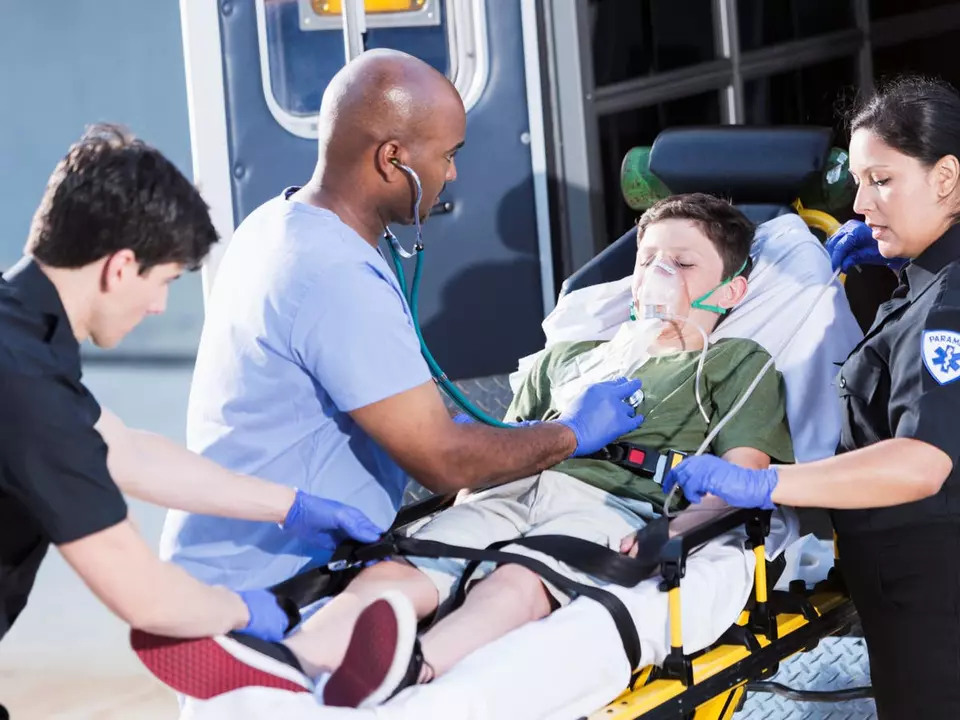Understanding Cardiac Arrest in Young Children
When we think about cardiac arrest, we often associate it with older adults who have a history of heart problems. However, it is important to recognize that even young children, such as a 2-year-old, can experience cardiac arrest. In this article, we will explore the various factors that can contribute to a child experiencing cardiac arrest and what parents and caregivers can do to help prevent it from happening.
How a Healthy Heart Functions in Children
Before we dive into the causes of cardiac arrest in young children, it's essential to understand how a healthy heart functions. A child's heart, like an adult's, has four chambers that work together to pump blood throughout the body. The heart's electrical system is responsible for controlling the heartbeat and ensuring that blood flows correctly. When a child has a healthy heart, it functions efficiently, providing oxygen and nutrients to the body and removing waste products.
What is Cardiac Arrest?
Cardiac arrest occurs when the heart suddenly stops beating due to an issue with its electrical system. This disruption can cause irregular heartbeats (arrhythmias) or a complete stoppage of the heart. When the heart stops pumping blood, oxygen is no longer supplied to the brain and other vital organs, leading to unconsciousness and, eventually, death if not treated immediately.
Causes of Cardiac Arrest in Young Children
There are several factors that can lead to a 2-year-old experiencing cardiac arrest. Some of these factors include:
- Congenital heart defects: These are abnormalities in the heart's structure that a child is born with. Some of these defects can cause the heart to work harder than it should, leading to an increased risk of cardiac arrest.
- Arrhythmias: Abnormal heart rhythms can disrupt the heart's electrical system, causing it to stop beating suddenly.
- Respiratory issues: Severe respiratory problems, such as choking or drowning, can lead to a lack of oxygen and trigger cardiac arrest.
- Electrolyte imbalances: Imbalances in the body's levels of potassium, calcium, and magnesium can cause heart problems, including cardiac arrest.
- Trauma: Injuries to the chest or heart can result in cardiac arrest.
Recognizing the Signs of Cardiac Arrest in Children
It can be challenging to recognize the signs of cardiac arrest in a 2-year-old, especially since they may not be able to communicate their symptoms effectively. However, some common signs to look out for include:
- Sudden loss of responsiveness or unconsciousness
- Gasping for air or not breathing
- No pulse or heartbeat
- Seizure-like activity or convulsions
If you witness any of these signs in your child, call emergency services immediately and begin CPR if you are trained to do so.
Preventing Cardiac Arrest in Young Children
While it may not be possible to prevent all cases of cardiac arrest in young children, there are steps parents and caregivers can take to reduce the risk:
- Regular check-ups: Ensure your child has regular check-ups with a pediatrician or family doctor to monitor their heart health and identify any potential issues early on.
- Maintain a healthy lifestyle: Encourage a diet rich in fruits, vegetables, whole grains, and lean proteins. Limit processed foods and added sugars. Encourage regular physical activity and playtime.
- Learn CPR: Knowing how to perform CPR on a child can be lifesaving in the event of cardiac arrest. Many organizations offer CPR classes specifically designed for parents and caregivers.
- Be aware of your family history: If there is a history of heart problems or sudden cardiac arrest in your family, discuss this with your child's doctor so that they can monitor for potential issues.
By understanding the causes of cardiac arrest in young children and taking steps to prevent it, we can help ensure the health and safety of our little ones. Remember to always trust your instincts as a parent or caregiver – if something doesn't seem right with your child, seek medical attention right away.





